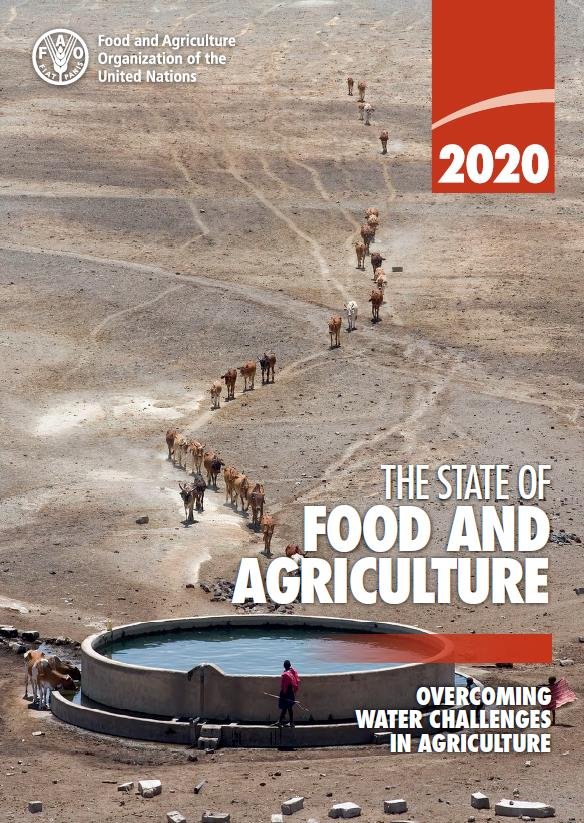 Read this article in French
Read this article in French- Share this article
- Subscribe to our newsletter
The State of Food and Agriculture (SOFA) 2020
Improved water management, supported by effective governance and strong institutions - including secure water tenure and rights, underpinned by sound water accounting and auditing - will be essential to ensure global food security and nutrition, and contribute to the Sustainable Development Goals (SDGs), the report The State of Food and Agriculture (SOFA) 2020 – Overcoming water challenges in agriculture states.
Published by the Food and Agriculture Organization of the United Nations (FAO) in late November this year, SOFA 2020 focuses on water and sheds a light on water-related challenges in rainfed agriculture, which represents more than 80 per cent of land under cultivation and 60 per cent of global crop production.
Finding an effective management strategy
"The inherent characteristics of water make it difficult to manage," the SOFA report notes. Paths for action range from investing in water-harvesting and conservation in rainfed areas to rehabilitating and modernising sustainable irrigation systems in irrigated areas.
These must be combined with best agronomic practices, such as adopting drought-tolerant crop varieties, and improved water management tools - including effective water pricing and allocation tools, such as water rights and quotas - to ensure equitable and sustainable access. However, water accounting and auditing must be the starting point for any effective management strategy.
Recognising water as an economic good
"Water should be recognised as an economic good that has a value and a price," the report says, noting that customary practices leading it to be treated as a free commodity often create market failures. A price that reflects the true value of water, by contrast, sends a clear signal to users to use water wisely. At the same time, policy and governance support is essential to ensure efficient, equitable and sustainable access for all.
Full-fledged water markets involving the sale of water rights are relatively rare. However, when water accounting and auditing is well performed, water tenure and rights are well established, and the active participation of beneficiaries and managing institutions is promoted, regulated water markets can induce efficient and equitable allocation of water, while promoting its conservation.
Small-scale irrigation systems can be very effective
"Water management plans need to be problem-focused and dynamic," the report recommends. SOFA notes that the rural poor can benefit substantially from irrigation and endorses its cautious expansion. Between 2010 and 2050, harvested irrigated areas are projected to grow in most regions of the world and to more than double in sub-Saharan Africa, potentially benefiting hundreds of millions of rural people.
The report notes that in some cases, small-scale and farmer-led irrigation systems can be more efficient than large-scale projects. That is a promising path for sub-Saharan Africa, where surface and underground water resources are comparatively undeveloped and only 3 per cent of cropland is equipped for irrigation - and where expanding small-scale irrigation can be profitable and benefit millions of rural people.
Nevertheless, many factors impede adoption, including lack of secure water tenure and access to finance and credit. In Asia, declining large-scale state-funded surface irrigation has led to farmers tapping directly into groundwater, placing excessive pressure on the resource. Addressing these issues will require investing in modernising old irrigation schemes, as well as effective policies.
(FAO/ile)
Read more and download the report The State of Food and Agriculture (SOFA) 2020 – Overcoming water challenges in agriculture at FAO website





Add a comment
Be the First to Comment